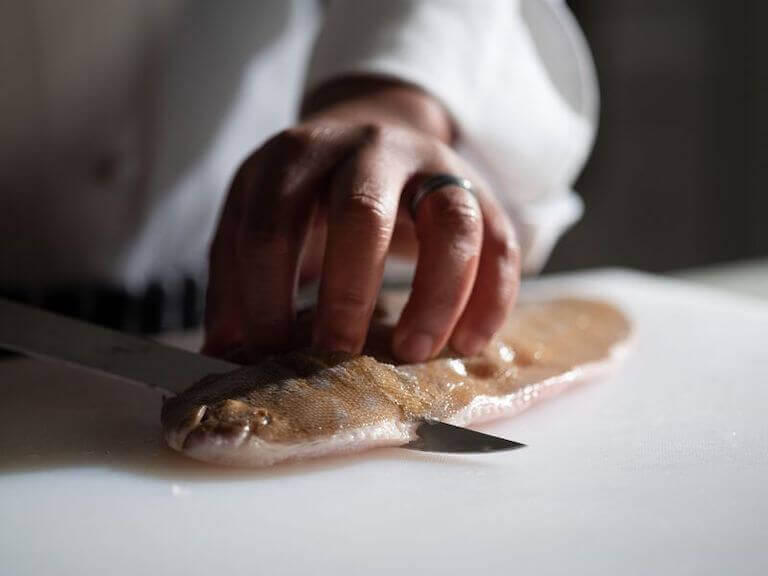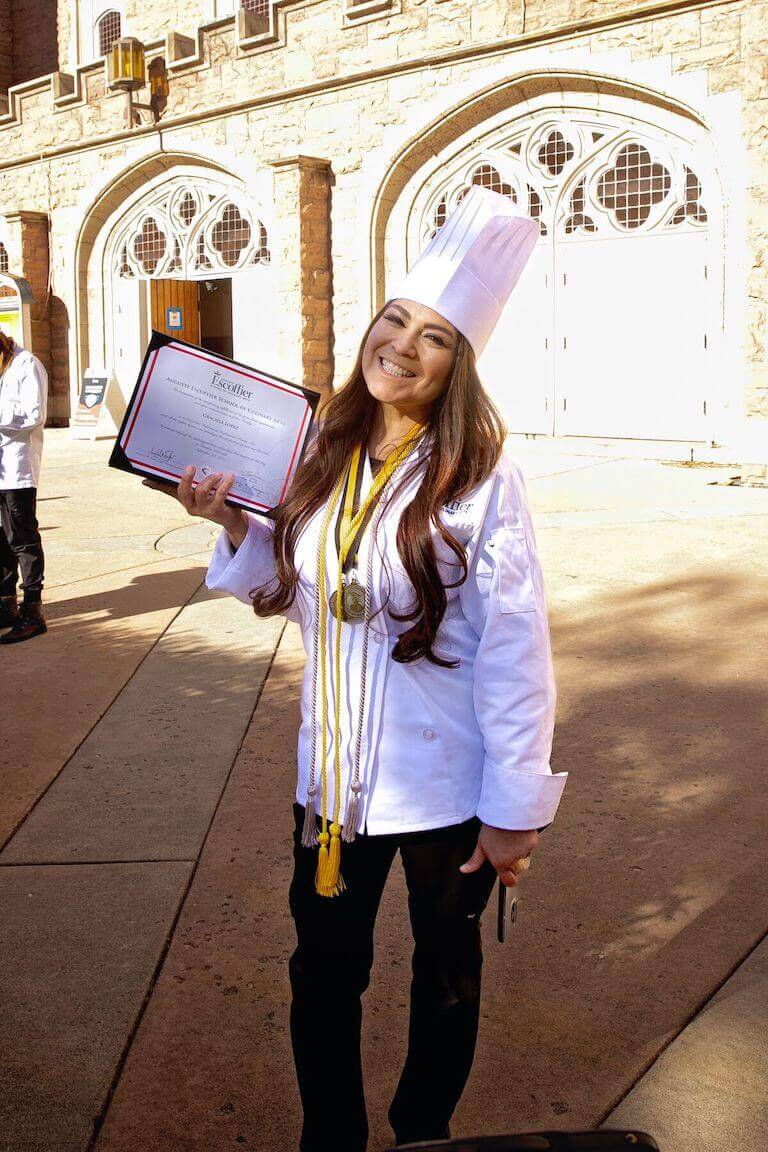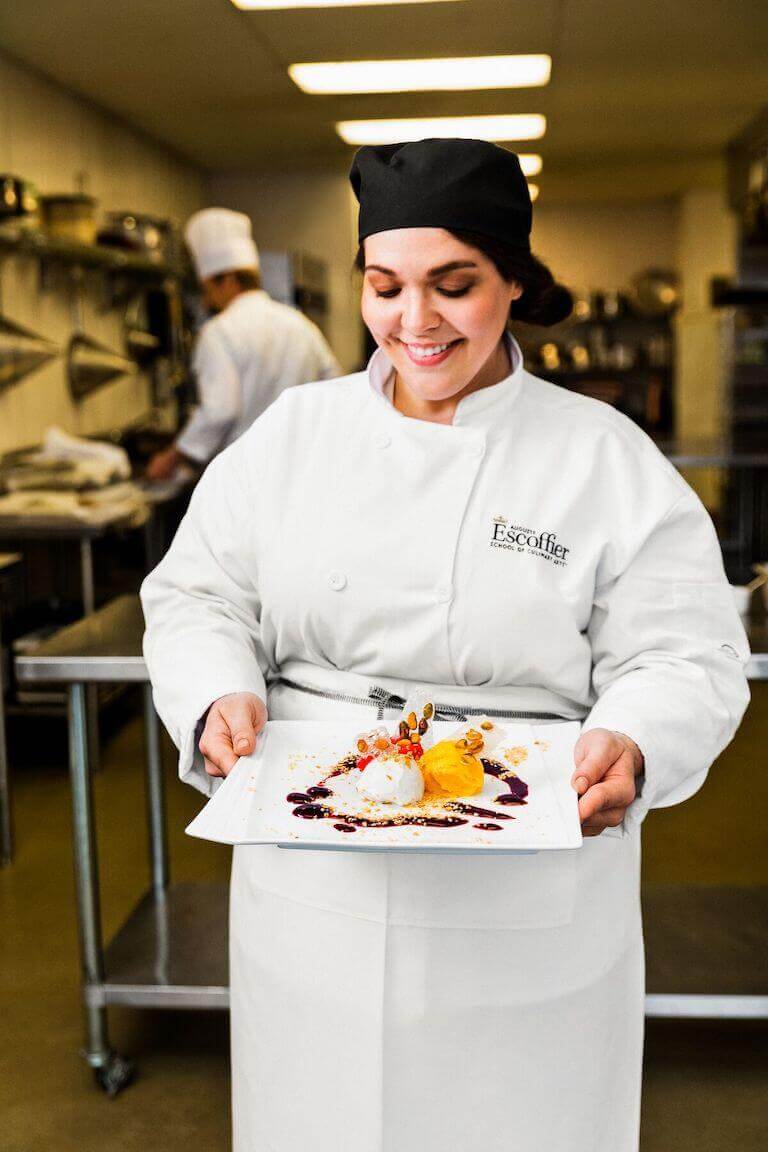Where does culinary school fit into the range of post-secondary education options?
Is it a culinary college? A trade school? A vocational school?
As you consider the next steps in your career, you have to decide how you’re going to get closer to your goals. And that means choosing where and how you’ll get an education.
So, is culinary school a college? The simple answer is: culinary school is often considered a trade school, rather than a college. Let’s explore what a college is, and where culinary schools like Auguste Escoffier School of Culinary Arts fit in.
What Is the Definition of a “College?”
Is any type of post-secondary school considered a college? Let’s turn to the word “college” itself to find out.
According to the Oxford English Dictionary, a college is “an educational institution or establishment, in particular one providing higher education or specialized professional or vocational training.” By that definition, it sounds like culinary school would be a college. After all, culinary schools offer specialized training in cooking and food preparation among other potential industry related disciplines.
But according to Dictionary.com, a college is “an institution of higher learning, especially one providing a general or liberal arts education rather than technical or professional training.” By this definition, culinary school may not be a college. Part of the appeal of culinary school is that it’s not general. It’s specific and practical, helping to prepare students for a career.

And U.S. News, which manages college rankings, says that colleges are “smaller institutions that emphasize undergraduate education in a broad range of academic areas.” That doesn’t sound like culinary school either, since they’re highly specialized in one or a few academic areas.
So clearly, we have to look beyond the dictionary!
Degrees and Accreditation Don’t Necessarily Define a College
Does an institution that grants degrees and has regional or national accreditation qualify as a college? Let’s take these factors into account one at a time.
If Culinary School Offers Degrees, Is It a College?
Perhaps we should look at what a culinary school offers its graduates to determine if it’s a college. After all, community colleges and larger universities provide associate degrees. So if a culinary school also issues associate degrees, would it be considered a college?
Not necessarily. Many trade and vocational schools offer associate degrees, and they don’t usually fall under the umbrella of “college.”
At Escoffier, our degrees are Occupational and Applied Science degrees, which means they’re designed for the real-world application of practical knowledge. They’re not “introductory” degrees, but goals in themselves that can help students prepare for the workplace.
In college, associate degrees are usually academic degrees, like Associate of Arts (AA) or Associate of Science (AS). These degrees are often intended to be later transferred to a four-year college for a bachelor’s degree. They’re a stepping stone to that second degree.
“For me, Escoffier was a short program which is exactly what I wanted and what I needed… I had already done three years of traditional college so I wasn’t interested in doing four more.”*
Lexi Nelson, Boulder Culinary Arts Graduate
If Culinary School Is Accredited, Is It a College?
Does regional or national accreditation make a post-secondary school a college?
Yes and no.
While many colleges and universities are accredited, there are some that are not. And there are some trade and technical schools that are accredited, and some that are not.
Accreditation proves that a school has met certain rigorous standards for academics and education. Unaccredited schools don’t have to meet the same guidelines, which can make the quality of the education they provide unreliable. Accredited schools are also more likely to receive industry recognition and be viewed as reputable institutions.
Both Escoffier campuses in Austin and Boulder are accredited, degree-granting institutions. As our online programs are available through our Boulder campus, these have the same accreditation status**. So while accreditation doesn’t define a college, our students can still feel confident that their education meets high standards of excellence.

Why a Trade School May Be a Better Fit Than College
Clearly, the definition of a college or “culinary college” is open to interpretation.
At Escoffier, we feel that the most accurate term for our type of accredited, skills-based programs would be a culinary trade school. Students may be prepared with hands-on training to help start their careers, rather than theoretical education.
Many students find the trade school model to be a better fit than college. Trade schools often come with a shorter timeline to completion and a lower cost than many colleges. This allows students to get into the workforce quickly, bringing technical knowledge to their first jobs.

Trade school programs are also highly focused, concentrating on only topics and skills that can be useful to the future culinarian, pastry pro, or foodservice manager. For associate degree students, even the general education requirements in writing, math, and science are designed to be applicable to the culinary industry. Technical Writing for the Hospitality Industry, Foodservice Math and Accounting, and The Science of Nutrition meet those course requirements while potentially adding to your culinary skillset, rather than distracting from it.
Culinary school might also be easier to fit into your normal life than college. Online students can complete their training and coursework from their home kitchens, allowing them maximum flexibility with their schedules. And on-campus students complete their day’s work in one continuous block, so they can go to work in the evenings if they choose. Compare that to college, where you may have one course from 8:00 am to 10:00 am, and then nothing at all until a 5:00 pm class that same day!
Plus, schools like Escoffier keep students up, moving, working with their hands, and making something tangible. For passionate culinarians, that can be much more fun than sitting in a lecture hall for hours at a time, where you may be just one in a sea of faces!
What Do You Want from Your Education?
If you’re looking for a general education in a variety of disciplines, then a four-year college may be the right choice for you. But if it’s important to you to get an exciting, practical education that can prepare you for your future in food in less than two years, then culinary school may be the perfect place for you.
Contact us today! The application process is quick and easy, and you can talk to an Admissions representative to ask all your questions about school and financial aid.
Do you have more questions about culinary school? Try these articles next:
- Community College Culinary School vs. Dedicated Culinary School: The Case for Specialization
- Can You Go to Culinary School with No Prior Experience?
- Can You Deduct College Tuition from Taxes?
*Information may not reflect every student’s experience. Results and outcomes may be based on several factors, such as geographical region or previous experience.
**Escoffier’s online programs are available through the Boulder campus. Auguste Escoffier School of Culinary Arts in Boulder, Colorado is nationally accredited by the Accrediting Council for Continuing Education and Training (ACCET). It is also approved and regulated by the Colorado Department of Higher Education (CDHE), Division of Private Occupational Schools. Auguste Escoffier School of Culinary Arts (Boulder, CO) has been approved by CDHE to participate in the National Council for State Authorization Reciprocity Agreements (NC-SARA).

